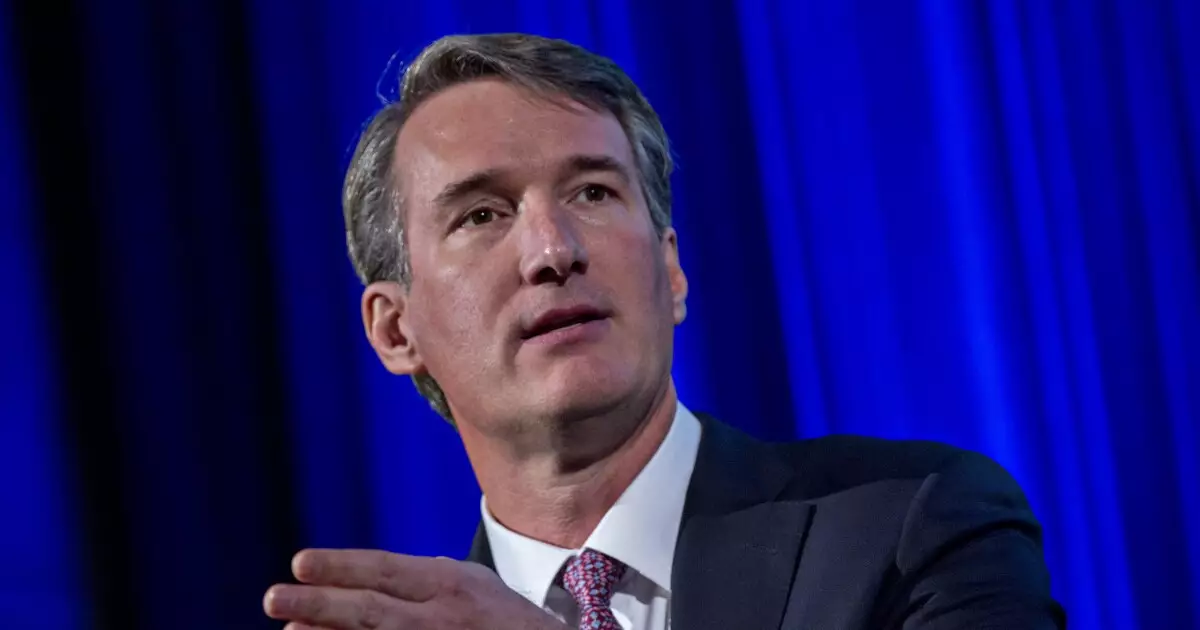As states across the nation grapple with the consequences of economic recovery, Virginia’s recent legislative developments illustrate a notable departure from some executive budget proposals. With bipartisan agreement emerging in the Virginia General Assembly, legislators are advocating for a significant tax rebate aimed at returning surplus funds to taxpayers. This billion-dollar initiative, which proposes direct payments to individuals and couples, underscores a growing trend among states that find themselves in a fortunate fiscal position. However, the negotiation process surrounding this rebate is still ongoing, and final outcomes remain contingent on collaborative effort between lawmakers.
Governor Glenn Youngkin’s administration, while supportive of providing financial relief to Virginians, diverges on the specifics of how these rebates should be executed. In a recent statement, Youngkin expressed his commitment to working alongside the General Assembly to reach a consensus. The proposed rebates would provide $200 for individuals and $400 for couples, alongside adjustments to the state’s standard income tax deduction. This approach largely aligns with requests from both the Republican minority and the Democrat-controlled assembly, indicating a rare moment of unity in a politically polarized environment.
Despite this cooperation, tensions are apparent. Youngkin’s ambitions to shift toward national politics may complicate his relationship with the General Assembly. His previous confrontations, notably the failed arena complex development in Alexandria—a project that would have housed professional sports teams—suggest that the governor may need to navigate carefully to maintain political capital while also fulfilling legislative desires.
The Importance of Budget Surpluses
Virginia’s considerable budget surplus plays a crucial role in fostering this conversation about tax rebates. According to fiscal experts, surpluses can often serve as a double-edged sword. While they present an opportunity for tax cuts and rebates, there is also concern regarding the sustainability of such fiscal policies. Nonetheless, the political appeal of immediate financial relief for constituents cannot be understated.
Senate Minority Leader Ryan McDougle mentioned the ongoing efforts to ensure that Virginians receive tangible benefits from the state’s surplus—reinforcing the sentiment that these rebates, even if not initially welcomed in their current format, allow citizens to feel more financially secure.
Understanding the Economic Implications
From a broader perspective, the proposed adjustments to personal property tax—specifically targeted at car ownership—paint a portrait of a state evaluating its revenue sources. The current vehicle tax rate of 4.15% contributes significantly to local and state finance. As lawmakers seek to recalibrate these revenue streams, they are confronted with the challenge of balancing fiscal responsibility with the necessity of maintaining essential services funded by these taxes.
A closer look at the fiscal strategies being implemented by Governor Youngkin, including a potential deposit of $295 million into Virginia’s reserve fund, reflects an ongoing commitment to financial prudence even amidst the push for rebates. The AAA bond rating recently assigned by Fitch Ratings further supports this narrative, highlighting Virginia’s robust financial management and the implications it has for future fiscal decisions.
As the calendar inches closer to the crucial February 22 deadline for finalizing the budget, the duality of collaboration and contention among Virginia leaders will be tested. The outcome of this negotiation will not only influence the immediate financial relief offered to citizens but will also set the tone for future economic policies and the state’s long-term strategic direction.
Ultimately, while Virginians can expect some form of relief from the surplus, the manner in which these rebates are structured will be pivotal. Political dynamics may shape the final compromises struck between Youngkin and the General Assembly, but the desire to deliver financial benefits to taxpayers remains a primary focus for all parties involved. Moving forth, Virginia’s fiscal landscape will be closely scrutinized as it endeavors to balance the demands of immediate relief with the necessity of sustainable economic practices.


Leave a Reply